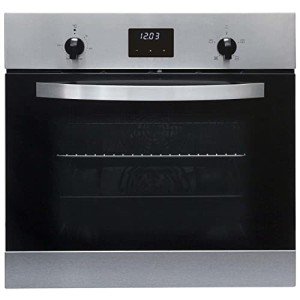Five Essential Qualities Customers Are Searching For In Every Cookers And Hobs

Understanding Cookers and Hobs: A Comprehensive Guide
Cooking is an integral element of life, and the evolution of kitchen appliances plays a considerable role in how efficiently and efficiently people prepare their meals. Among these appliances, cookers and hobs are 2 of the most important instruments discovered in modern-day kitchens. This post looks into the differences in between cookers and hobs, analyzes their numerous types, and uses insights on their functions, upkeep, and choice process.
What are Cookers and Hobs?
Cookers
Cookers are detailed kitchen devices developed for cooking tasks, usually combining an oven and a hob. They are available in numerous configurations and types, catering to diverse cooking needs and preferences.
Hobs
Hobs, on the other hand, are more concentrated appliances mainly utilized for boiling, frying, and other stovetop cooking approaches. Hobs can be standalone units or an integrated part of larger cookers.
| Function | Cookers | Hobs |
|---|---|---|
| Function | Combines oven and hob | Stovetop cooking just |
| Design | All-in-one system | Separate unit or integrated |
| Types | Electric, gas, double fuel | Gas, electric, induction |
| Installation | Enables more versatility | Built into the countertop |
| Rate Range | Usually higher | Varies commonly |
Kinds of Cookers
1. Electric Cookers
Electric cookers use electrical power as their main source of power. They typically include a built-in oven and multiple cooking zones on the hob.
Benefits:
- Even heat distribution
- Available in numerous styles (e.g., freestanding, built-in)
2. Gas Cookers
Gas cookers work on gas or melted petroleum gas (LPG). They offer instant heat control, making them a preferred amongst professional chefs.
Benefits:
- Instant heat changes
- More budget friendly operational costs
3. Dual Fuel Cookers
Double fuel cookers combine the heat of gas with the efficiency of electric ovens. This setup enables for the very best of both worlds, offering control and constant outcomes.
Benefits:
- Flexible cooking options
- Exact control over stovetop cooking and baking
4. Range Cookers
Range cookers are larger and more powerful than basic cookers, including multiple ovens and hobs for substantial cooking jobs.
Advantages:
- Ideal for big families or cooking for occasions
- Offers numerous cooking alternatives in one home appliance
Types of Hobs
1. Gas Hobs
Gas hobs are favored for their quick heating and strong flame, making them excellent for burning and stir-frying.
Advantages:
- Instant heat and control
- Compatible with any type of cookware
2. Electric Hobs
Electric hobs heat up using electric coils or glass-ceramic surfaces, supplying a contemporary appearance and effective cooking.
Benefits:
- Easier to clean up
- Uniform surface ideal for numerous pots and pans
3. Induction Hobs
Induction hobs utilize electromagnetic fields to heat pots and pans directly, providing quickly and energy-efficient cooking.
Advantages:
- Safe (cool surface after eliminating cookware)
- Energy-efficient and exact
4. Strong Plate Hobs
These standard hobs use strong electric plates that heat up slowly.
Advantages:
- Rugged and durable
- Typically more inexpensive than other types
Key Features to Consider
When picking a cooker or hob, numerous functions ought to be taken into consideration:
- Size and Space: Consider the size of your kitchen and the quantity of workspace required.
- Cooking Style: Choose based on choice-- gas for control, induction for performance, etc.
- Efficiency Ratings: Look for energy-efficient designs to decrease utility costs.
- Relieve of Cleaning: Smooth surfaces help with easy upkeep.
- Safety Features: Automatic shutoff, flame failure devices, and kid locks boost safety.
Upkeep Tips
Preserving cookers and hobs prolongs their lifespan and guarantees safe operations.
- Regular Cleaning: Wipe down surfaces after use to prevent buildup.
- Examine Seals: Check oven door seals routinely for wear and tear to maintain performance.
- Service Regularly: Schedule expert servicing at least when a year.
- Ideal Cookware: Use cookware proper for your hob type to avoid damage.
Frequently Asked Questions (FAQs)
What is the difference in between a cooker and a hob?
A cooker integrates an oven and hob in one unit, while a hob is generally a standalone home appliance for stovetop cooking.
Do I require a professional to install a gas cooker or hob?
Yes, expert setup is recommended for gas devices to make sure security and compliance with regional policies.
Can I utilize any type of cookware on induction hobs?
Induction hobs require magnetic pots and pans. Stainless-steel or cast iron pots work best. Non-magnetic materials will not warm up.
Are electric cookers more energy-efficient than gas cookers?
While both have advantages, electric cookers tend to be more energy-efficient overall, specifically with modern, high-efficiency models.
How typically should I clean my cooker or hob?
It is best to clean them after each usage and perform a thorough cleansing weekly to avoid buildup and residue.
Understanding the differences, features, types, and maintenance pointers for cookers and hobs is essential for any home cook. By picking the best appliance fit to their culinary needs, users can improve their cooking experience, making meal preparation an efficient and enjoyable chore. Whether opting for just click the next post of gas or the smooth performance of induction, picking the appropriate cooker or hob can result in a significantly improved kitchen experience.

